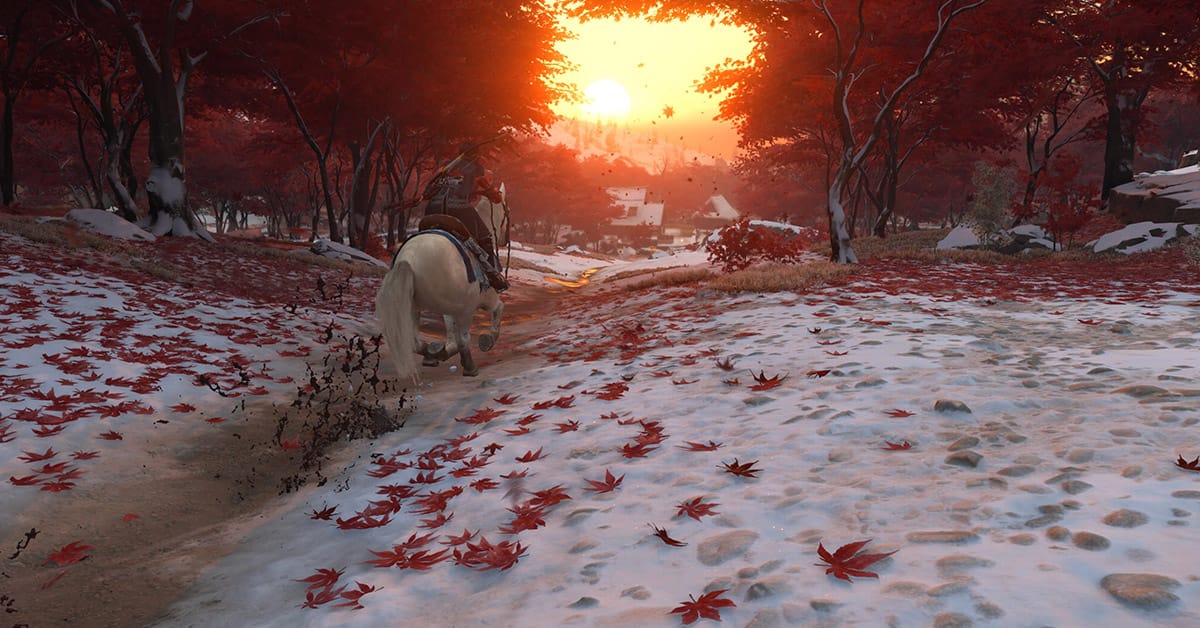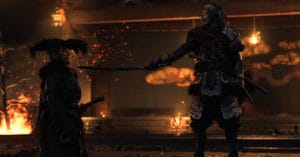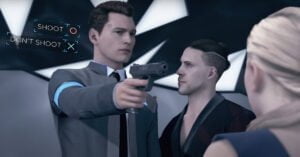Based on what I thought of Ghost of Tsushima and what I saw in the trailers leading up to Ghost of Yotei, my expectations for Sucker Punch’s new title weren’t all that high. I assumed it would mostly be a reskin of the original. Once again I spotted those damn golden birds, the foxes, the shrines, the same type of landscapes. I braced myself for another solid game, but not a great one.
But within half an hour of starting Ghost of Yotei, I was convinced otherwise. It became immediately clear that the very things that bothered me in the first game had been reworked. And the longer I played, the more obvious that became.
The World No Longer Feels Empty or Repetitive

Just minutes after yet another stunning title screen appeared, I stumbled upon a camp. It wasn’t marked on the map. There were no indicators pushing me there. And it didn’t need any—it was entirely optional.
The people there told me more about the situation and even gave me a lead. That lead turned into an optional activity I could chase down. And that was the moment I thought: this is exactly what I missed in Ghost of Tsushima. Right then I knew Ghost of Yotei offered more than just the endless trail of indicators pointing me from one location to the next.
Even the fox dens have become far more inventive. It’s no longer just “find the den > follow the fox > get a new charm.” The structure is technically the same, but in Ghost of Yotei it’s wrapped in more varied and layered encounters. At one point, for instance, a fox led me to a settler who was stuck in a ravine. I helped him climb out, had a brief chat, and he in turn guided me to my reward.
It might not sound like a massive change, but in-game it makes a world of difference. I no longer know exactly what to expect, and that makes exploration all the more enticing.
Quests Flow Seamlessly Into Each Other
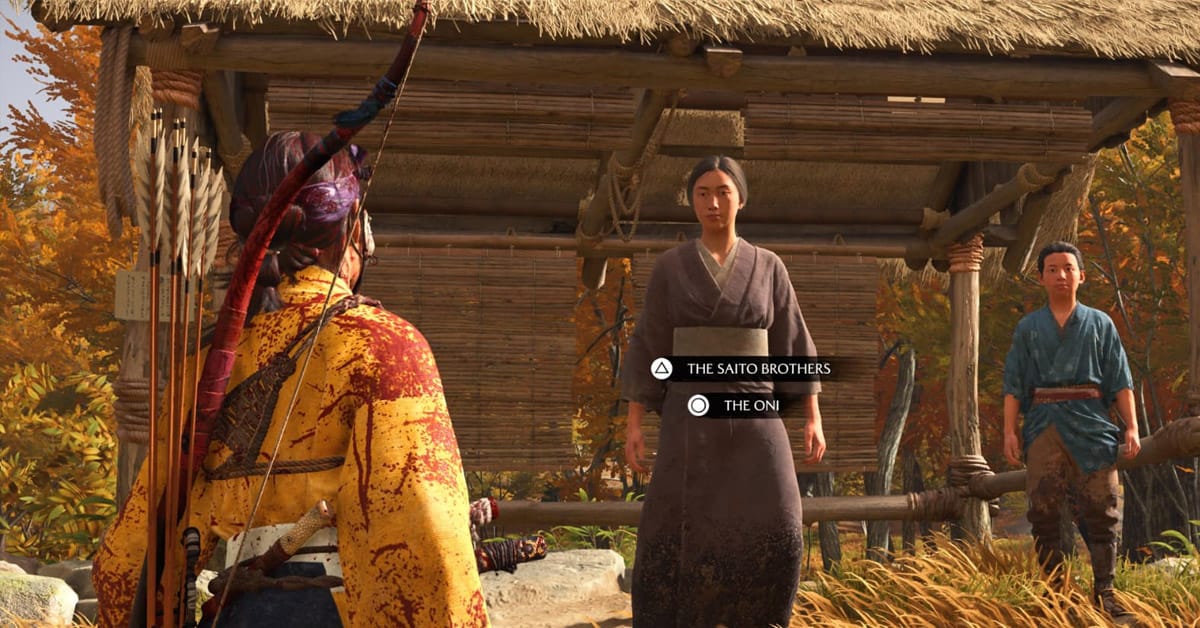
Ghost of Yotei still contains its share of repetitive tasks. There are plenty of camps to wipe out, or villagers to rescue by cutting down waves of enemies.
One reason I enjoy those more now I’ll get into below, but another major reason is the way quests (both side and main) flow into one another.
Take the sensei missions, for example. Masters who teach you new skills for your weapons, or reward you with a flashy weapon kit. In some cases, they’ll ask you to liberate, say, four camps. But if you’ve already cleared a few on your own initiative before receiving the quest, those are immediately counted toward your progress and removed from the objective list. Sometimes you’re already doing valuable work without realizing it.
In another case, a quest asked me to free a specific person. I had already done that earlier, and protagonist Atsu immediately acknowledged it. The fact that you can tick off parts of a quest without consciously following its steps creates a far more satisfying feeling than when those activities only become available after someone formally hands you the quest.
Combat Is So Much Better and More Challenging
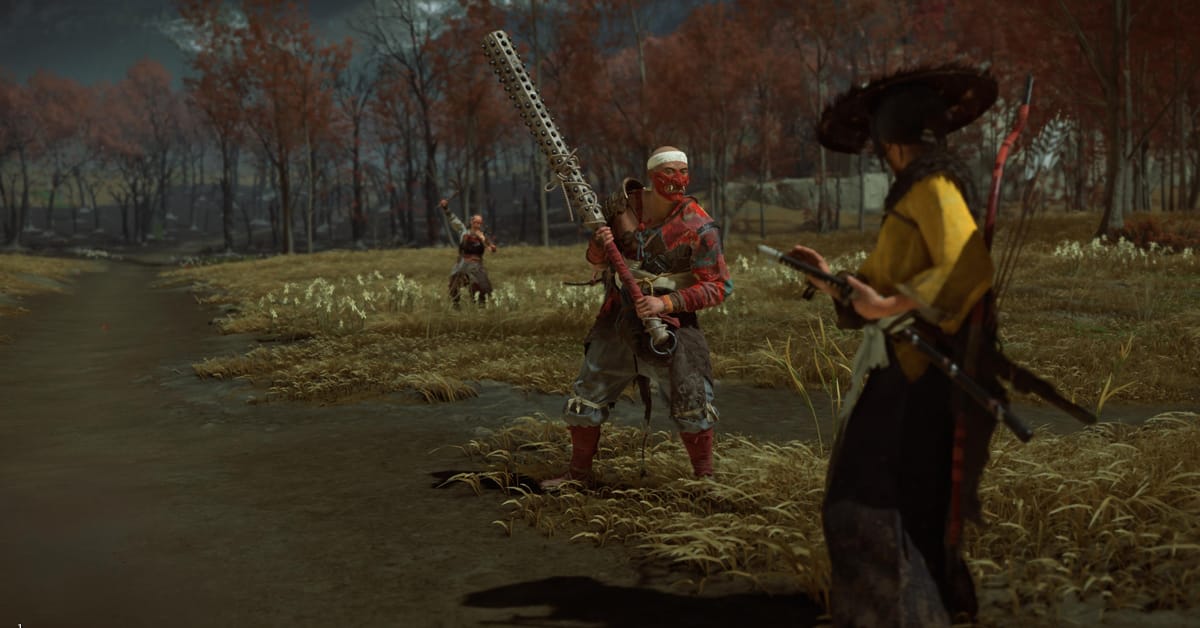
In Ghost of Tsushima I rarely felt the urge to chase down every icon on the map. I didn’t need extra health, skills, or focus; the game was fairly easy. Enemies politely waited their turn, I could parry without much trouble, and dish out damage at my own pace.
Because of that experience, I cranked Ghost of Yotei up to Hard. Enemies are far more ruthless this time around. They charge in relentlessly, no longer waiting for their turn. Some dart at you with twin blades, others lunge with spears, while a brute lines up to smash you in the middle of it all.
When you finally cut through a group like that with one of your many weapons, it feels incredible. The animations are slick—defensive moves, offensive strikes, all of it. Final blows look brutal, and don’t even get me started on the move where you flip up a weapon from the battlefield and hurl it straight into an enemy. It’s awesome.
The boss fights especially manage to put me in my place again and again. That’s why this time I actually follow every golden bird or fox I come across. I want to be as prepared as possible for what’s ahead. Because the Yotei Six are bound to push me to my limits.
The More Intimate Story Grips Me Far More

I was a little skeptical about the story beforehand. It looked like the typical revenge tale we’ve seen so many times before. And the truth is… it kind of is. But thanks to the performances and the way everything is woven together, I find myself deeply invested.
The shifts between flashbacks and the present add a lot on an emotional level. You understand the anger burning inside Atsu, and her unbreakable drive for revenge feels justified as the game steadily feeds you more pieces of her past.
In Ghost of Tsushima, you were tasked with liberating an entire island. In Ghost of Yotei, you’re “only” hunting down the six murderers of your family. It’s smaller in scope, more personal, and therefore far more moving. Through what we see in both past and present, I’ve grown to feel immense empathy for our protagonist; a character who has endured tremendous hardship not just in her virtual life, but on social media as well…
Atsu Is a Far Better Protagonist Than Jin Sakai
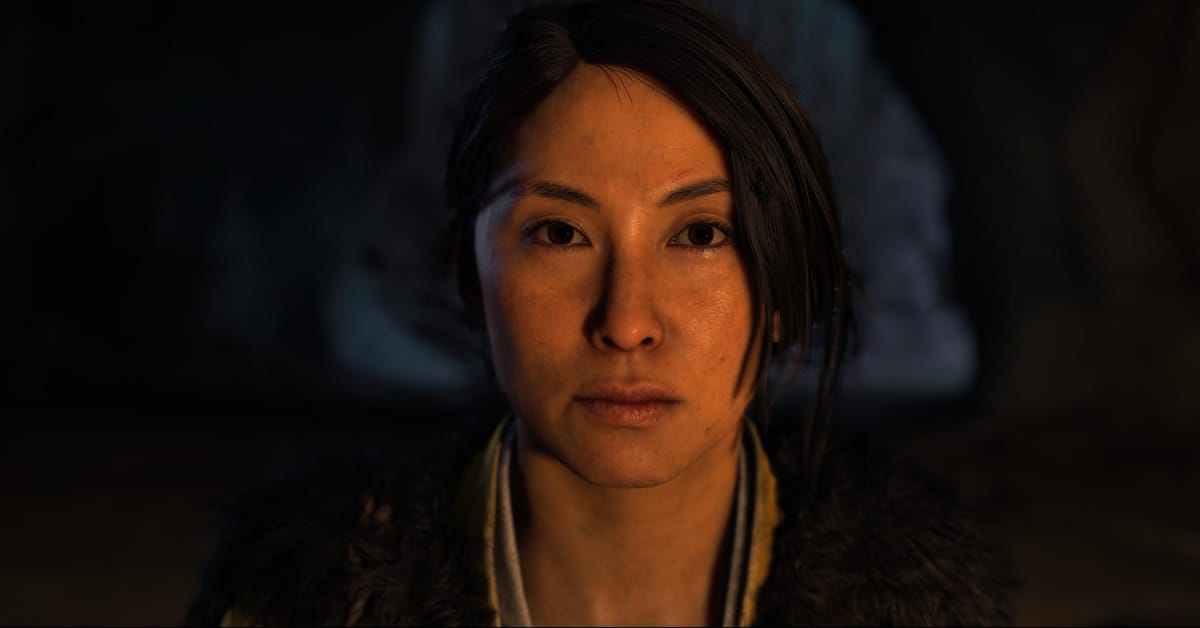
Open any social media thread about Ghost of Yotei and you’ll inevitably see the same tired comments from people complaining about having a woman as the protagonist. They’ll try to disguise it under nonsense like “a woman could never take down that many men”—as if one man single-handedly mowing through an entire army makes any more sense.
Frankly, I’m glad those short-sighted players are robbing themselves of what is shaping up to be a fantastic sequel. From the very first moment, I felt a stronger connection to Atsu than I ever did to Jin Sakai.
A samurai is bound to his code. It’s all about honor and loyalty. That’s fine, admirable even, but in my opinion it doesn’t translate particularly well into a game. I want a protagonist with more personal drive, more individuality, more personality.
And Atsu has personality in spades. As a mercenary, she does what she wants, and nothing stands between her and her path to revenge. She’s brought brilliantly to life by voice actress Erika Ishii, who constantly convinced me I was in the presence of a fierce yet broken woman.
On top of that, Atsu delivers absolute badass one-liners that never fail to get me hyped for the next fight. Simple, calm threats like “You don’t want to do this” are delivered with icy conviction and are a thrill to hear. Everyone in the world underestimates her because she’s a woman, which makes proving them wrong all the more satisfying.
Keep an eye on this page for the full review, which will be online soon. But be warned: it might take a while. For now, I’m far too busy chasing every fox and bird I stumble upon.

